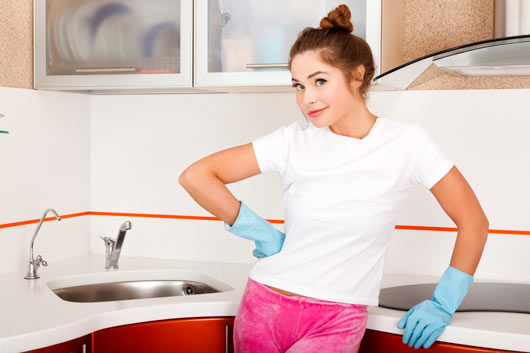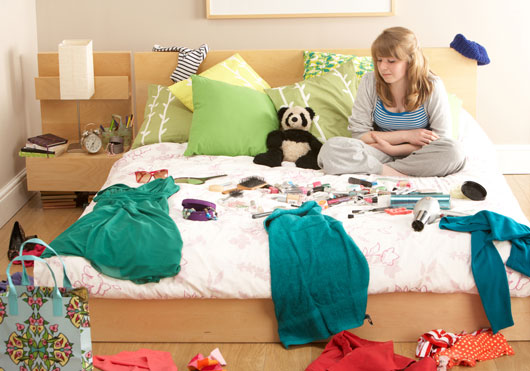
Living green is a lifestyle choice espoused by many. A green lifestyle is a conscious choice that takes planning and effort to maintain, but the benefits are worth it. My wife and I are building a brand new eco-friendly home in our community, and we want to increase their green awareness and incorporate more green living habits into our lives. These are some steps we’re taking for a greener life, that you can adopt for your family and home, too.
10 tips to go green in 2014
-
Reduce water consumption. There are several ways a family can reduce its water consumption.
-
Take showers instead of baths. Newer higher efficiency showerheads provide good water pressure and use less water than filling a bathtub.
-
Shorten shower time. You save up to 5 gallons of water for every minute you cut from shower time.
-
Use high efficiency toilets. Over the past several years, manufacturers have worked to make toilets more water efficient and bacteria-resistant, which makes them easier to clean.
-
Xeriscape. Be thoughtful in your landscaping choices. Utilize plants and grasses that are drought tolerant and don’t need much water. Reduce your water consumption and garden maintenance simultaneously.
-
Plant trees for shade. Not only will the shade help reduce your cooling bill, it will also increase property value when the trees mature.
-
-
Use natural cleaning products. Natural cleaning products are readily available at most supermarkets. They clean, disinfect and deodorize the same way conventional cleaning products do, but without harmful chemicals. Read labels before you purchase, natural ingredients include baking soda, borax, cornstarch, lemon juice, mineral oil, vinegar and washing soda. If you choose to make your own, add essential oils for fragrance.
Read Related: Endocrine-Disrupting Chemicals: A Threat in Every Home
-
Maximize solar power. Consider installing solar panels to heat and cool your home. Solar panels will reduce energy levels and benefit your entire community by reducing energy consumption at the local power plant.
-
Preserve air quality. Use eco-friendly paints the next time you update a room in your house. Eco-friendly paints have very low levels of Volatile Organic Compounds (VOC) and come in a wide array of colors.
-
Reduce utility consumption. Upgrade to a high quality air filtering system. By providing better air ventilation and exhaust in your home, you will have cleaner air to breathe while reducing strain on your community’s electric and gas consumption.
-
Buy natural and organic products. When making purchases for furniture and bedding, choose organic products made from sustainable materials like unbleached wool, bamboo, or natural plant fibers. Using eco-friendly furniture is an excellent way to detox your home. Organic mattresses made from wool or natural latex and have been shown to reduce allergens in the air.
-
Use reusable containers. Rather than using foil or plastic wrap, try using reusable storage containers for leftovers or lunches. Consider taking a coffee mug to work instead of using styrofoam cups. Not only will you save money, you will also reduce items that sit in a landfill for years, decomposing.
-
Eat clean. More processing equals less nutrient density in foods. Focus on buying fresh organic fruits and vegetables. Reduce the amount of processed foods in your diet. Eating clean will improve your health and cut down on landfill items by cutting out cans, glass and plastics in your trash.
-
Conduct an energy audit. Discover where you have leaks and plug them up. Inefficient windows and doors can cost a lot in utility bills in the winter. If you still feel drafts, hire a professional auditor through the Department of Energy’s Energy Saver site. They can make excellent recommendations to make your home weather tight.
-
Recycle. Most major cities offer free recycling as part of weekly trash removal programs. Take advantage of the service and separate glass, plastic, aluminum and paper. Every quarter, go through closets and drawers and find clothes the kids have outgrown or that you simply don’t wear anymore and donate them to a thrift store or homeless shelter. Items that are gently used can benefit others in your community.
Living a green lifestyle is a conscious choice but the benefits for family and community far outweigh the planning it takes.
Robert Nickell (a.k.a. Daddy Nickell), father of 7, offers his “5 cents” worth of advice to expectant and new parents. Daddy Nickell is the founder of Daddy & Co. (formerly Daddyscrubs) delivery room duds, gifts, and apparel for dads, and the DailyDaddy blog, where he covers topics about parenting and the latest baby and kids gear, all from a Dad’s perspective. The Nickells are building an eco friendly home that’s on track to receive Platinum LEED certification from the U.S. Green Building Council.













Leave a Reply
Want to join the discussion?Feel free to contribute!